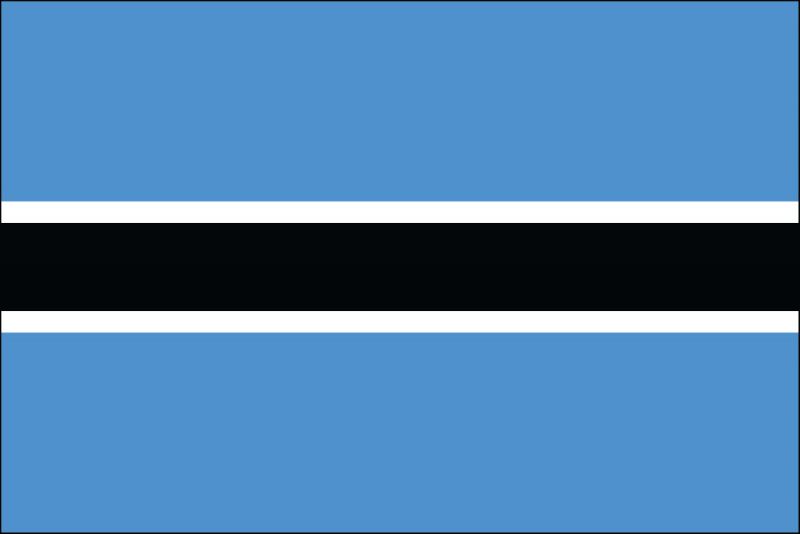Numerous individuals who identify as Tswana only geographically and not culturally have long complained that the name "Botswana" is prejudiced. This is why they advocate for change.

A view into the future:
"This is Radio Interior news from Gaborone at 7 p.m., and I'm Aloe-Vera Legaga." President Mpho Xiaoping congratulated the national soccer team on their qualification for the 2042 World Cup in Lesotho.
They were speaking at a luncheon honoring the group hosted by the Interior Football Association. President Xiaoping expressed his happiness that the Interior had historically made it to the World Cup both as a head of state and as a football fan.
Interior defeated Zimbabwe 16-1 two weeks ago to qualify for the tournament in Harare's Nelson Chamisa Stadium. This afternoon's luncheon occurred at the Pilane International Convention Center in the Matsieng neighborhood.
The Interior Energy Regulatory Authority rejected the Interior Power Corporation's application for another tariff increase."
Five names have been proposed to replace ‘Botswana.’
You can tell that this article is from the future, as suggested by the Presidential Commission of Inquiry into the Review of Botswana's Constitution. Numerous individuals who identify as Tswana only geographically and not culturally have long complained that the name "Botswana" is prejudiced.
Some of those people were allowed to address the Commission, which was presided over by former Chief Justice Maruping Dibotelo, with their complaints regarding the title.

Others suggested renaming Southern Central Africa, Shashe, Kalahari Republic, Kgalagadi/Kalahari, and Interior. At the same time, some argued for a thorough consultative process to gather suggestions for a new name.
While it did not provide reasons, as it did for other issues, the Commission advised the government to keep the name "Botswana." The name-change issue arose in early 2000 when Botswana was developing its national brand under the Botswana Export Development and Investment Authority.
They wanted to say "Batswanaland," so they codified their mispronunciation. Following the 1885 Berlin Conference, where western powers divided Sub-Saharan Africa, Britain was given Bechuanaland and renamed Bechuanaland Protectorate.
Bechuanaland Protectorate was renamed "Botswana" after becoming independent in 1966. One of the people who suggested the name was Motsamai Mpho, a Moyei man who later rose to prominence in the opposition.
At this point, the movement for cultural rights was still in its early stages. While some non-Tswana people agitated for artistic rights, such a campaign was more systematic and sustained than it would be a decade later.
According to the Dibotelo Report, Sechele I of Bakwena, Dikgosi Khama III of Bangwato, and Bathoen I of Bangwaketse rejected the name "Kgalagadi" for the new colony in 1895.
They connected that name to inferiority in the tribal caste system they had contributed to maintaining. The Report also criticizes the "discriminatory" naming of particular districts and institutions, such as Kgatleng and Kgatleng Land Board.
"Opinions were expressed that resource distribution is biased in favor of tribes recognized under the Tribal Territories Act, to the detriment of other tribes not recognized under the Act." It is argued that this has resulted in uneven development within and outside tribal territories.
The Report proposes renaming tribal regions as follows:
- Central Tribal Region for Ngwato territory
- Matsieng for Kgatleng
- Ngami Tribal Region for Tawana territory
- Kobokwe-Dithejwane for Kweneng
- Mmakgodumo-Kgwakgwe for Ngwaketse
- Borwa for Barolong Farms
- Ngotwane-Baratani for Gamalete.
That will be the setting for the Interior national football team's luncheon in the Matsieng District. President Mpho Xiaoping proposes an unlikely scenario:
“The Commission says that children born to a single non-citizen mother living in Botswana, as well as children born to Motswana and non-Motswana parents holding dual citizenship, be barred from occupying offices of Cabinet Minister, Member of Parliament, Vice President, and President, and from joining disciplined forces.”
Mpho would not be eligible to serve as president if they were born in Motswana, a Chinese national, and held dual citizenship. If the rumor is accurate, the latter advice will spell the end for the political dynasty known as the Khamas.
Even in the elite social circles of Extension 5, Botswana's first affluent enclave, and the upper echelons of the Government Enclave, there is a strong suspicion that Sir Seretse Khama's children have dual citizenship (Botswana and British).
Khama married Ruth Williams, a white Englishwoman who would later become Lady Ruth Khama while still a student in the United Kingdom. The second child, Ian, became the fourth president of Botswana and the second commander of the BDF.
The Botswana Patriotic Front, founded by Khama after leaving the ruling Botswana Democratic Party, is led by his younger brother Tshekedi. Currently, the Member of Parliament for Serowe North is rumored to be considering running for president.
They are currently engaged in a contentious conflict with his successor, President Mokgweetsi Masisi, who will have the final say in creating a white paper based on the Dibotelo Report, Khama.
Masisi is likely to adopt the recommendation that forbids dual nationals from holding the office of president if his goal is to prevent a Khama from gaining that position. However, the government could quickly ascertain Tshekedi's citizenship status if it had the resources to do so.
The scenario is that they will be officially approved in the context of the LGBTQI rights outlined for those under this category.
The Births and Deaths Registration Act should be amended "to provide for delayed selection of gender marks for intersex people until the individual is fully developed to choose their gender mark," the Commission recommends. It also suggests adding the term "intersex" as a category of gender to the constitution.
In one sense, and as is already the case in the west, that could lead to non-binary people who feel they don't quite fit into the boy-or-girl box using gender-neutral pronouns like "their," "they," and "them" in official contexts.

